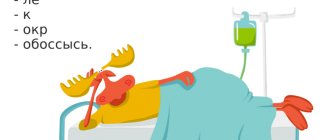Greetings, dear reader!
If you are wondering: how to find a goal in life, then now is one of the most important stages of your life, and your future depends on which course you choose. Purpose underlies all the greatest achievements and undertakings in our world, helps us overcome difficulties, and makes us always move forward. But if now you are standing at a crossroads and are looking for your goal, your “spark” that will illuminate your existence with a bright light, then today together with you we will try once and for all to find the very goal that you need.
The conversation will not be about how to achieve financial well-being. Acquiring the things necessary for life and maintaining one’s standard of living are ordinary human needs, since the life of each individual must satisfy basic requirements. It's about something bigger; about the direction of actions that are the basis for everything that happens in life; about the necessary growth and development, about how to solve problems through hard work, despite all the difficulties, while not losing enthusiasm and having fun. We are talking about a clear life goal.
Today we will take 3 consecutive steps, each of which will help you determine your true goal:
- First step: we will figure out what the real goal is and what it is for;
- Second step: we will perform several exercises that will help in finding the goal;
- Third step: we will analyze the main mistakes when choosing a goal, and check our goal for the presence of these errors;
However, I ask you not only to read these tips, but also to work hard on yourself. And not someday later, but right now. The first thing you and I have to do is to realize what the real goal is. Let's get started!
Introspection.
The first and most reliable method that anyone who has no goal in life should resort to is careful self-analysis. You can do it both in your head and by writing it down. We are talking about mental maps - a technique for visualizing thinking using notes or images on a sheet of paper. This makes it possible to structure your thoughts, choose the most important thing and discard all the unimportant points. The main thing is to ask yourself the right questions and answer them as honestly as possible, even if these answers go against previous life experience. The more sincere the “communication” with your inner self is, the easier it will be to choose guidelines for movement.
Childhood memories.
If the answer to the question of how to find a purpose in life causes significant difficulties, you should use a little trick. It is associated with the actualization of childhood memories. The fact is that the early years of a person’s life are characterized by sincerity. The child knows exactly what he wants, what is interesting and important to him. Over time, this spontaneity recedes under the pressure of public opinion, social values and norms of behavior. A person who has dreamed of becoming an astronaut since childhood turns into an ordinary worker without ever trying to take a step towards the stars. But who knows, perhaps if he had not changed his dream, he would have been at the ISS a long time ago, and not at an ordinary gas station. If you remember everything that attracted you in childhood, it becomes much easier to find a clue in finding your purpose.
Take a personality type test
How to find a purpose in life: 7 main questions
So, we come to the most important thing - finding your goal. In order for everything to work out, I will ask you to arm yourself with a pencil and a notebook - we will complete the tasks in writing. Finding your true purpose is about asking the right questions of yourself.
What gives me pleasure?
The first question we will touch on is quite simple. Think about what gives you pleasure in life? This is the first important step. In life you can find a lot of examples when someone, devoting himself to his favorite business, was able to achieve great heights. For example, Bill Gates, whose passion for computer technology led to success. Or Oprah Winfrey, who helped people and achieved incredible heights in this. From an early age, Edison was distinguished by his thirst for innovative solutions.
Think about what your soul is about. Business, fitness, crafts - it doesn’t matter, as long as it’s a favorite pastime. Favorite activities help you find purpose. If you like to draw, then this is the direction you need to move towards. It is important to look for the signs and understand them. Think about what you would like to do. And don’t forget to display your thoughts on paper: You need to write down at least 5 activities that give you pleasure. Ready? Let's move on.
What am I interested in?
Analyze your own interests. Take this seriously. It is important to find what arouses the greatest interest: maybe you have always been interested in travel - new cities and countries, new emotions. Maybe you are interested in studying laws? Know how to use them to benefit people and help in difficult situations?
Most likely, by answering these questions, you will determine the desired vector for further search. If you think that you are not interested in anything, try to find at least something that can interest you. A significant part of success is related to interests. Your task is to write down on a sheet at least 5 areas that interest you.
How I spend free time?
Analyze your leisure time: what do you do and what would you like to do when you make plans for your free time? What would you do with yourself if you had even more time free from business (and if you had unlimited financial capabilities). Most likely, leisure, if it is not spent watching a TV screen or watching a feed on social networks, is somehow connected with what you are striving for, have a predisposition, which means it will help in finding a goal. It's simple: write 5 activities that you would like to do in your free time. Happened? Let's move on.
What was my interest as a child?
If a growing child is deprived of the right to choose throughout his childhood, he is unlikely to develop goal-setting skills. The absence or presence of goals is directly related to early age. It is difficult for a person for whom his parents decided which section or circle to go to, with whom to communicate, and whom to avoid, to independently determine the goal, since the habits of choosing for himself have not been formed.
Therefore, remember your childhood: what did you like? What did you enjoy? What did you dream about? What gave you vital energy? You can also mention things that you would like to do, but you could not afford it, because it is not rational, it does not bring a good income, or your parents do not approve. Write down 5 such activities.
What inspires me?
If you want to find your goals, think about what inspires you, gives you strength and captivates you? Do you consider sales to be an art? Or, on the contrary, do you want to quickly leave work and cook something new for dinner? Perhaps you are inspired by the biography of some successful person - think about it, maybe you are interested in the activity in which this person succeeded? Think about it carefully and write down 5 activities that inspire you.
What are my true desires?
Write down everything that comes to mind. Remember that all these: a car, an apartment, a sofa, a trip to the south, a leather jacket, a higher salary, a smartphone - all this does not relate to real values. “Having something” is not cool. The truly cool thing is to “be someone.” This is the question you should ask yourself - who would I like to be? What do I strive for in life? This point is one of the most important, pay enough attention to it and write down at least 5 of your true desires.
What does my ideal day look like?
We are approaching the finale, the most important thing. Try to find a corner where you won't be disturbed for half an hour. Turn off your mobile device, the Internet, turn off the radio, TV, all equipment and appliances. Make yourself comfortable. Close your eyes, relax and throw away extraneous thoughts.
Then imagine the future, say 10 years from now: what place is it, who is next to you? What clothes do you wear, what have you achieved in life? Try to keep your train of thought calm. Avoid patterns and stereotypes in your way of thinking. Surrender to the flow of thoughts and see which shore it takes you to. The clearer and more contrasting the picture, the easier it will be to materialize it. The task is not easy - you need to imagine your ideal day down to the smallest detail - who you have become, where you are, what you can do and what you have achieved. Write everything down in detail.
Final stage
If everything worked out, then it’s time to put together everything that we have written down and get an answer to the main question. So, friends, your task is to review your notes and find what you wrote about most often. What is mentioned in the list of interests, and in the list of children's wishes, and in the scenario of an ideal day. If you approach this exercise responsibly and carefully, then you will definitely find this clue , which is present in almost every one of the 7 lists compiled. This is what you thought about most. This is what you strived for most. This is your real goal in life!
If you were not able to complete everything at once, then the picture below presents in a convenient form the questions that we went through:
Take this picture (photograph or print it) and review it periodically, asking these important questions. Sooner or later you will come to realize what your real goal is.
Well friends, that's not all. One more final step awaits us, which will help us make sure whether we have really chosen the goal that is our only one. To do this, we will analyze several main mistakes when forming a goal, and analyze our goal for these errors. Well, are you ready? Begin.
Solitude in nature.
City noise and bustle are bad helpers for a person who has decided to put his thoughts in order. To better understand yourself and understand how to find your purpose in life, it is often necessary to retire. It is advisable to do this somewhere in nature, at least outside the city limits. The location can be any, from a lake to a forest clearing. The main thing is that the environment is conducive to a leisurely train of thought and a clear dialogue with your inner voice. Why is this so important? The fact is that in the “concrete jungle” a person is surrounded on all sides by social stereotypes, norms, and rules. This fetters his personality and prevents him from becoming himself. A natural setting helps to remove the “mask” and penetrate the subconscious, which contains answers to all important life questions.
A little about not having a life goal
The desire to find your purpose and life purpose is inherent, perhaps, in all people. But often, under the influence of various factors and circumstances, such as, for example, upbringing, the worldview of parents, the influence of the environment, imposed beliefs and ideals, the promotion of a certain lifestyle, way of thinking and everything that you need to have and want to have, lead to that people just lose themselves in all this. They seem to fall asleep, their whole life becomes unconscious and mechanistic, and their thinking becomes stereotyped and standardized. As a result, all questions concerning the meaning of life lose their relevance, fade into the background or are completely discarded as unnecessary.
If a person is still concerned about such topics, and he has not completely lost his individuality, selfhood and the feeling that he needs to strive for something or at least look for it, the answers to the questions posed above are often difficult to find, which often significantly darkens existence , creates a feeling of purposelessness of existence, becomes the cause of apathetic or depressive states.
The lack of a life goal has an extremely negative impact on a person’s life. This is the inability to fully reveal your personal and creative potential, and the duality of thinking and behavior, and the loss of interest in activities and in life in general, and real happy moments can be counted on one hand. You can endlessly analyze this topic piece by piece, but this is not what is important at all, but what is needed, and most importantly, you can come to an understanding of your true purpose and determine specific life goals.
Intuition.
One of the tools that the inner voice uses when trying to give a hint to a person is his intuition. If you listen to it, many things become clear, including how to find a purpose in life. This skill is present in every person, but the degree of its development differs. The good news is that the sixth sense can be trained and becomes stronger with regular use. Thanks to intuition, you can learn to predict events, feel other people, and at the peak of its development, also clearly understand your purpose. A person with developed intuition will enter exactly those doors behind which he is most expected, setting himself the most pressing tasks.
Take the intuition test
What is the difference between the meaning of life and the purpose of life?
The difference between the meaning of life and the purpose in life lies in the singularity and globality of the first concept and the plurality and locality of the second definition. To put it simply, when a person finds the meaning of his existence as his own destiny, then he has already achieved it with this awareness and there is no reason to continue the search. After all, there can be only one meaning in existence, and sometimes it is necessary to spend your entire life to fully realize it.
Things are different with life goals. Firstly, there can be many of them. Secondly, when one goal is achieved, a person immediately switches to achieving another. For example, a person sets a life goal - to find a worthy partner. Time passes, and she finds him, accordingly, the goal changes, now it looks like this - to have a child with the current chosen one. A child was born, the goal changed again, now it is this: to provide the child with a decent future. And so on until death.
Important information! By the way, life goals can exist for one individual in parallel to each other during the same period of time; the difference will only lie in the areas of their implementation. Nothing prevents a person from setting two or three life goals, for example, achieving a high career position at work, organizing his personal life and achieving recognition in his favorite sport.
Reading books.
It is difficult to think of a greater storehouse of information and experience than books. This universal source of knowledge does not lose its relevance even in the era of all kinds of gadgets and devices. Perhaps it is changing a little, keeping up with the trends of the time. Audiobooks, videos, and various mobile applications are appearing. But their essence remains unchanged - the accumulation and transmission of wisdom. Each person in one of the books will definitely come across a hint on how to find a goal in life. Which one exactly? It is impossible to answer. The more books you read, the faster the answers will be found. True, this will also raise new questions.
Dream, desire and goal - their differences and relationships
If I write briefly, without letting my thoughts run wild, then:
1. A dream is an imaginary image of what a person has wanted for a long time, which is something important and valuable for him at this stage of his life’s journey, but not realized and inaccessible at the moment. For example, getting an education in the area where interests and preferences lie in order to become a specialist in this. Or, it’s been a long time since you’ve been able to meet your person in order to live together and start a family. Or..., I think you can give many such examples, they exist at every stage of life, if a person consciously approaches it.
2. Desire is a feeling of the need to act, a strong internal need to realize a dream when it has been forming for some long time (different for each person). We can say that this is the next stage in the materialization of our dreams. The first stage was a formed, stable mental image, which flowed into the desire to perform specific actions and actions. Of course, there can be many desires. Fleeting desires - to go to the movies, to a concert, to visit... But here we are considering more stable forms of desires that involve the realization of a long-term dream or a combination of them.
3. Goal(s) is the next stage of realizing a dream, arising from the desire to act, to do something for this. This is setting specific goals, developing plans for specific actions that lead to the realization of dreams and desires.
We can say that this is a clear system, a set of algorithms, which can first be formed in mental form, but then necessarily materialized, which is expressed in specific plans, tasks, distribution of work, the time of their completion, and the use of necessary resources.
Fulfilling goals leads to the realization of the dreams of a person or group of people. The relationship between these three necessary components of human activity is clearly visible here. One element follows from another, which ensures their continuity, and at the same time they are different. Each of them has its own structure, meaning, time frame and requires certain resources.
Of course, all three components may not be so strongly related. For example, a goal can arise quickly, based on some external circumstances, where you need to respond to a challenge. For example, you did not enroll in college as a full-time student. Then another goal arises, or there may be several of them. Go to work and try to enroll in an evening or correspondence course. Or try again next year to get into the daytime. Or go to enroll in another educational institution. Here comes a choice that needs to be implemented correctly.
But let's talk about all this further.
Expanding your circle of acquaintances.
No less effectively copes with the question of how to determine the purpose in life, and live communication. Each personality is a whole book that can be reread an infinite number of times. Everyone has their own goals and motives. The more people a person gets to know, the more experience he gains. If books contain more facts and assumptions, then in the process of dialogue it is the transfer of experience that occurs. Although, there are a number of books that are reminiscent of communication with the author. A striking example is “Think and Grow Rich,” written by the American author Napoleon Hill. But even such a wise book cannot give the main thing. She will not provide answers to all questions that arise. During a conversation, you can always clarify something and ask again, making the transfer of information more individual and useful.
Take the test: introvert or extrovert?
Do you know that if a person does not have goals in life, he will not become rich and successful?
I'm looking for 5 people with the problem of lack of goals and meaning in life, who want to find themselves and become rich and successful
You don't know what you want from life, that's why you suffer from it
Are you worried that you won't find what you truly want to do?
You consider yourself worthless, so nothing works out, and if nothing works out, then you have no desire to do anything.
If you recognize yourself, sign up for a diagnostic consultation with a psychologist











